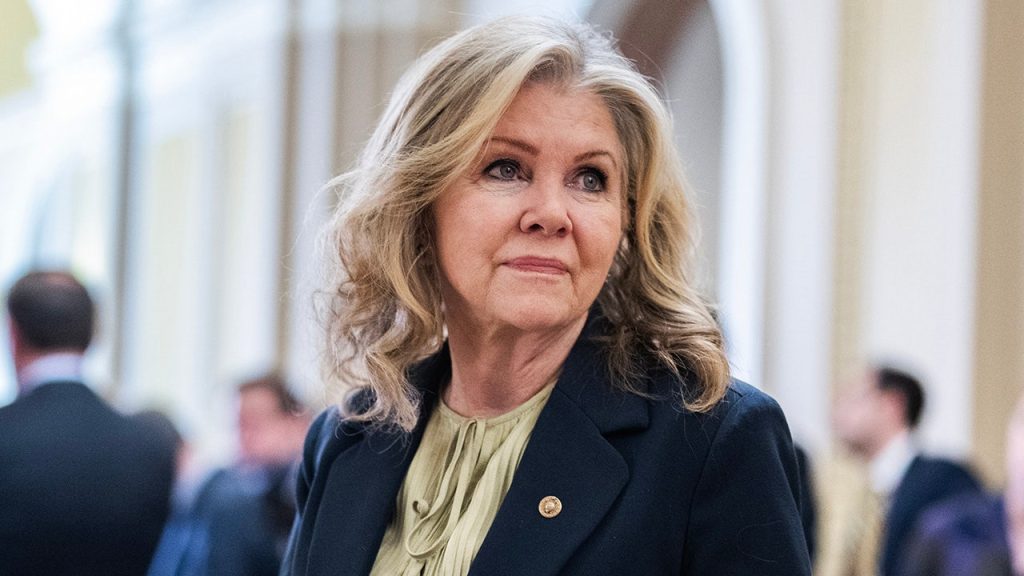Senator Marsha Blackburn’s proposed “DOGE Acts” represent a significant legislative push to align with the cost-cutting objectives of the Department of Government Efficiency (DOGE), spearheaded by Elon Musk and Vivek Ramaswamy. This package of bills aims to address perceived inefficiencies and excesses within the federal government, focusing on three key areas: relocation of federal agencies, a freeze on hiring and salaries, and a return to in-office work for federal employees. Blackburn’s initiative mirrors the broader framework being advanced by DOGE, signaling a concerted effort within the Republican party to streamline government operations and reduce spending.
The relocation of federal agencies away from Washington, D.C., is a central tenet of the DOGE Acts. This proposal seeks to decentralize the federal government, potentially distributing agencies across different regions of the country. Proponents argue that this move would not only reduce costs associated with operating in the high-cost D.C. area but also foster economic growth in other parts of the nation. They also suggest that it could reduce the influence of special interests and lobbyists concentrated in the capital. However, critics may raise concerns about the logistical challenges and potential disruptions associated with such a large-scale relocation.
The proposed freeze on federal hiring and salaries for one year is another key component of Blackburn’s legislative package. This measure aims to curb government spending by limiting personnel costs, a significant portion of the federal budget. Supporters argue that a temporary freeze would provide an opportunity to assess staffing needs and identify potential redundancies. Opponents, however, may argue that a hiring freeze could hinder the government’s ability to deliver essential services and could negatively impact the morale of federal employees. The long-term effects of such a freeze on the quality and efficiency of government services would need careful consideration.
The push to get federal workers back in the office addresses the shift towards remote work that accelerated during the pandemic. While proponents of returning to the office cite potential benefits for collaboration and productivity, critics argue that remote work offers flexibility and can improve work-life balance. The debate surrounding remote work involves considerations of employee morale, office space costs, and the overall impact on government operations. Blackburn’s proposal seeks to reinstate a more traditional office-based work model for federal employees.
The unveiling of the DOGE Acts follows a series of meetings between Musk, Ramaswamy, and lawmakers, indicating a growing momentum behind the DOGE initiative. The bipartisan support from Representative Jared Moskowitz further suggests that the drive for government efficiency resonates across party lines. While the specific details of each bill within the DOGE Acts package are yet to be fully disclosed, the overall direction reflects a commitment to streamlining government operations and reducing taxpayer burden.
The response to Blackburn’s proposed legislation will likely be varied. Supporters will likely applaud the efforts to cut costs and improve government efficiency, while critics may raise concerns about the potential consequences of these measures. The debate surrounding the DOGE Acts will involve complex considerations of the balance between cost-cutting, service delivery, and the long-term impact on the federal workforce. The legislative process will provide a platform for these different perspectives to be aired and debated as the bills move through Congress.
The DOGE initiative, with its emphasis on cost-cutting and efficiency, has emerged as a significant focus for some lawmakers. The proposed DOGE Acts, spearheaded by Senator Blackburn, represent a concrete legislative effort to translate these objectives into actionable policies. The debate surrounding these proposals will likely continue as the bills are considered by Congress, highlighting the ongoing discussion about the appropriate size and scope of the federal government. The long-term impact of these proposals, if enacted, remains to be seen, and will depend on the specific details of the legislation and the effectiveness of their implementation.


